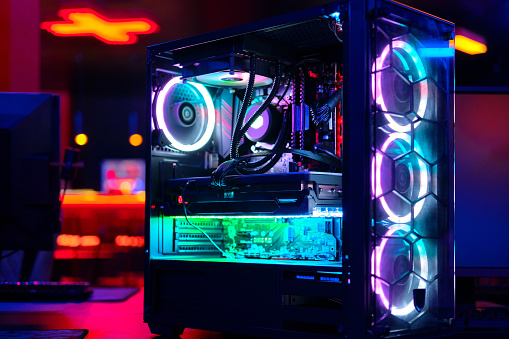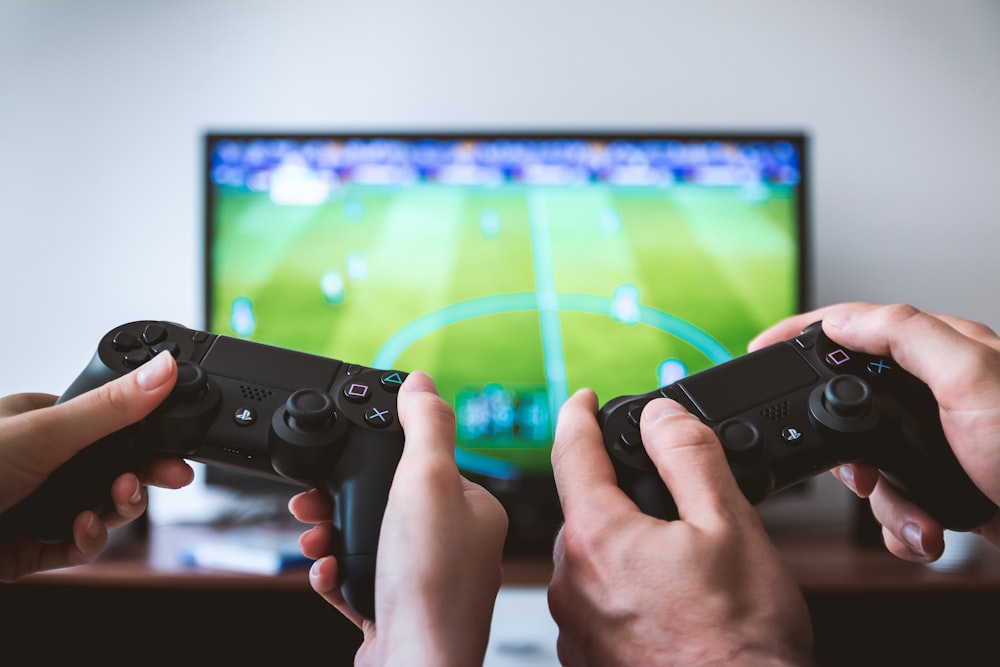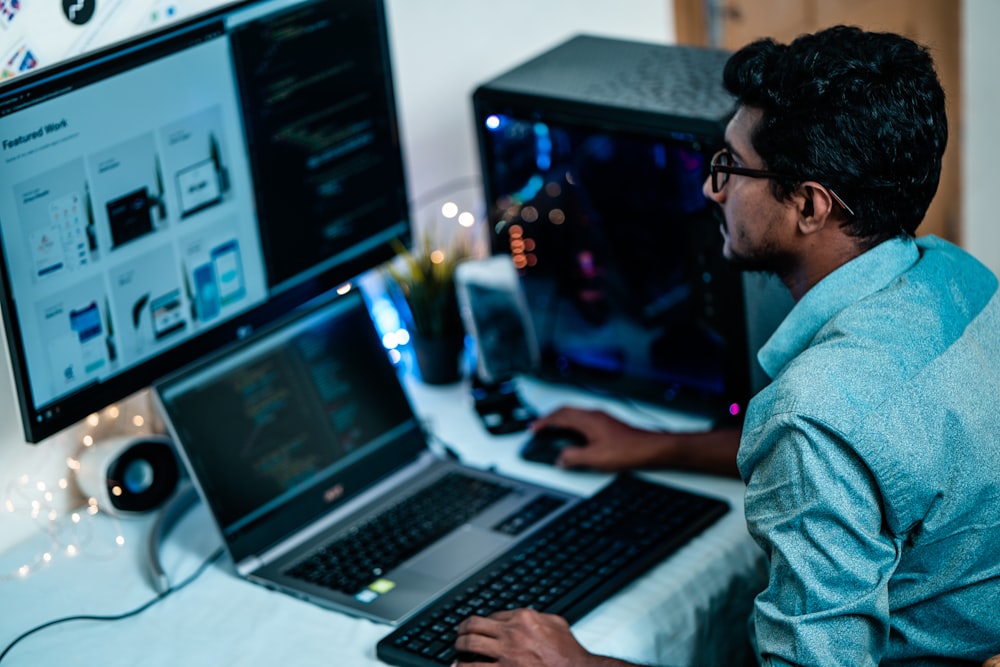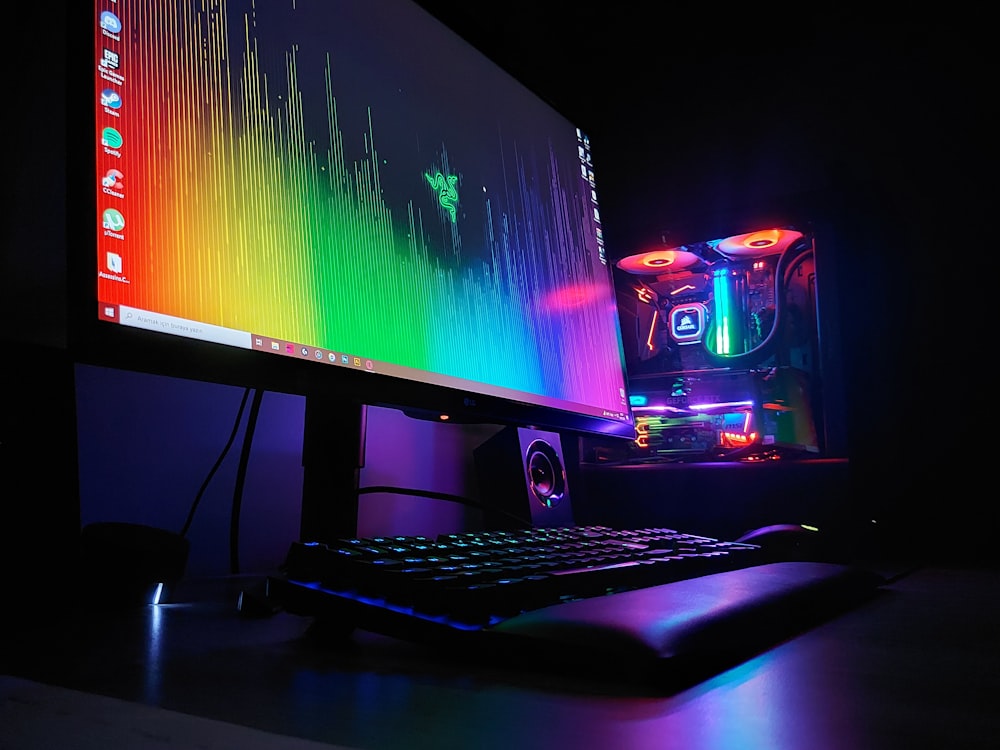You’re likely not going to light a gaming PC on fire and see if it explodes, but you may be wondering if they are safe to leave on when not in use, or if there are any other concerns. Can a Gaming PC Explode?
No, nothing inside the CPU can’t be able to remotely be flammable or cause an explosion. However, Laptop pc yes, the battery could catch fire and be explodes. Desktop pc is more likely to catch fire, but not have any real risk of exploding.
At first glance, it seems like the large amount of energy stored within the system would make it dangerous to operate.
However, the components in a gaming PC don’t store that much energy at all. Instead, they run on a very small amount of power which is amplified to create more energy.
The danger comes from how fast this amplification happens and how quickly the voltage can spike up.
Without further ado, here’s everything you need to know about exploding gaming PCs and what you should do if you have one

Related Article: Is It Safe to Leave My Gaming PC Overnight?
Can A Gaming PC Explode?
A gaming PC is different than a traditional desktop computer. A gaming PC is designed specifically to handle intense graphical applications and video games.
It typically has more powerful components like a top-of-the-line graphics card, the best CPU, and more RAM. In order to run efficiently and without any issues, this high-powered machine needs to stay cool.
To do so, it has a cooling system that includes an air cooler or a liquid cooler, which removes excess heat from the system by pulling it away from the internal components.
The concern with these machines isn’t that they’ll explode when left on for a long time or if you leave them idle for too long. The concern is that there’s a chance of explosion if it’s pushed well beyond its limits.
If you’re running a game or an application on your gaming PC and it’s not optimized for your specific system, then the risk of an explosion becomes much higher because the CPU can get pushed past its limit before the cooling system kicks in.
If you have one? You should never leave it on while not being used without turning off any power settings that might cause it to go into sleep mode or hibernate after 5 minutes of idle time.
Additionally, be sure that your case is nice and cool before shutting down your PC as well. Doing so will help prevent any potential damage to your hardware due to condensation build-up inside of your case from cooling down too quickly.
What’s inside a gaming PC?
A PC is made up of lots of tiny components. These include a power supply, motherboard, video card, CPU cooler, and the case itself. Each component has wires that connect it to the others. These wires are very thin and delicate.
The power supply takes in electricity from your wall outlet or whatever outlet you’re using and converts that energy into a form the computer can use.
The CPU takes in instructions from the motherboard, performs calculations on them, and then sends those results back to the motherboard for processing. The video card is responsible for handling all the graphics on your screen.
It receives instructions from the CPU about what to display on your screen, calculates what’s needed in order to perform that task, and then provides it so you can see it on your monitor.
The case houses all these parts and usually allows room for additional expansion cards as well as fans that keep everything cool by taking away heat generated by the internal components of your gaming rig.

Why Shouldn’t You Leave A Gaming PC On When Not In Use?
You may be wondering why you shouldn’t leave a gaming PC on when not in use. The short answer is that doing so can cause the components to store more energy than they should and can also create a power spike.
When this happens, it can cause damage to the components and even lead to an explosion. If your PC isn’t running any programs or games, it will power down automatically after being idle for some time.
This is a safety measure to prevent the over-storage of energy in the system components. However, if you don’t want to wait around for your CPU to turn off, then you should manually shut the computer down.
This will help prevent any unwanted accidents from happening while saving power at the same time! Another thing you should take into consideration is what kind of cooling methods are used in your gaming rig because this will play a role in how safe your PC is while idle.
If there are fans inside your system blowing air outwards, then these fans need to be working properly in order for them to work as intended and keep the system cool enough for safety purposes.
When should you turn off your gaming PC?
It is recommended to shut down a gaming PC when it’s not in use. The PC should be unplugged from the wall outlet and all peripherals should be disconnected as well.
If you have a laptop, you can turn it off and close the lid, but do not put it into sleep mode or connect the charger.
The most important thing to remember is that power surges from other electronics should never be connected to a gaming PC.
This includes televisions, microwaves, coffee pots, lamps, etc. When you’re powering back up your PC after an outage or blackout, always remove any extension cords or surge protectors before reconnecting the power cord.

Why do we need to worry about exploding PCs?
The risk of PCs exploding is incredibly low. The amount of energy needed to cause an explosion is far more than what a PC can produce.
There are also other factors that work as fire breaks in the event of an explosion. For example, the size and shape of a gaming PC mean that it cools off quickly so there’s no risk of fire spreading from your PC to the rest of your house.
It also doesn’t store enough energy to cause a blast, which means there’s nothing to spread fire from one object to another.
Even if it does explode, the explosion is contained within the device, not shooting out like with a gas tank for example.
In short: unless you want an extra reason not to sleep next to your gaming PC, you don’t need to worry about explosions!
What Are The Dangers Of Leaving A Gaming PC On?
The only real danger is that the system could overheat. The components in a gaming PC are designed to run within a certain temperature range and will shut off if it exceeds this range.
However, when they come back on they may overheat again because there’s no way to tell how long it was running at an elevated temperature. These spikes in temperature can be fatal to a system and cause it to explode, but they usually just lead to reduced performance.
The other issue involves power surges which can also cause systems to overheat or break down altogether. You see, the power supply creates electricity by converting energy stored in chemicals into kinetic energy in its coils.
A surge of power coming from any source (a sudden brownout for example) will overload the system with more power than it can safely handle. This also leads to reduced performance and possible damage.
Tips To Stay Safe While Leaving Your Computer On:
- Cable Management: Make sure the power cables are neatly wrapped up and not snaking around. This will help avoid accidental contact with the power cable and reduce any chance of a power surge. -Avoid overloading outlets:
- Ensure you’re plugging your computer into an outlet that’s not overloaded. For example, don’t plug in your PC and space heater next to each other as this may also cause a fire.
- Keep them cool: When possible, keep your PC out of direct sunlight or away from other hot sources like exhaust fans. This keeps the inside of your computer cooler which will help prevent cells from overheating. Some PCs come with built-in fans to help regulate temperatures but some users may need to invest in an external fan.
- Use a surge protector: If you don’t have one, get one! Power surges can happen without warning, so it’s worth it to be prepared just in case. A surge protector is a small investment that can save you from costly repairs or worse, a dangerous fire.

Can a gaming PC break?
A gaming PC is made up of many different components that all work together. These components can break, but they’re also often large and bulky, which makes them difficult to break.
The risk of your gaming PC breaking doesn’t come from the computer itself, but from the other electronics in your home.
For example, a power surge could fry the motherboard or fry your video card. But this is rare because the electronics in your PC are designed to handle these types of power surges and spikes.
How long can Gaming PC last?
The power supply in a gaming PC can last up to 10 years if the system is powered off when not in use. The life of your power supply depends on how often you use the computer and how hard it’s been pushed.
If you leave your computer plugged in all the time, or if you run it 24/7, the power supply will typically last between three and five years.
If you don’t operate your computer much, but still leave it on, this will cause the components to wear out quicker. The length of time a gaming PC lasts also depends on what type of components it has.
Some are designed for continuous operation, while others are designed for intermittent operation so they can turn themselves off during periods of low activity. This makes them more efficient and more reliable.
Will my computer explode if it gets too hot?
Computers can overheat and cause a system crash if the CPU gets too hot. The same goes for gaming PCs, but these are less susceptible to this as they are designed to run hotter than your typical laptop or desktop.
The reason for this is that gamers usually have their PC plugged into a power socket with a large cooling fan mounted on top of it which helps cool the machine at all times.
Installing an air cooler will help keep your system running smoothly in high-performance mode while keeping your costs low.
Will a GPU explode?
You may be wondering if a GPU will explode. The answer is no, but it can get very hot and cause some damage to your components.
You’ll notice that the graphics card uses a lot of power, and that’s because it has to run extremely fast to generate video content. Even when they’re not in use, these graphics cards can still switch gears and make the fans spin up at high speed.
In fact, you’ll hear them even when the computer is turned off. You may also notice that there are warning signs on your CPU fan as well, which means it could spin up arbitrarily.
Because of this danger, it’s recommended not to leave your PC on for hours at a time with no one home.
If you have any concerns about this or would like more information about how to avoid damaging your computer from leaving it on too long, we recommend contacting an electronics technician for help.

Can a computer explode from overheating?
Can a computer explode from overheating? The answer to this question is no. Computers do not have enough energy to cause an explosion.
However, if you leave the power cable plugged in and the system continues to run even after it reaches the overheating threshold, there is a possibility that it could start melting or catch on fire.
This would only happen if there were other materials like dust or debris inside of the system as well.
How long does it take for a computer to explode?
The actual time it takes for a gaming PC to explode is really hard to predict. This is because there are so many different factors that can affect how quickly the components inside generate energy.
For example, if you have a lot of dust buildup, this will create resistance that slows down the flow of electricity. The more dust in your PC, the slower the amp rate and lower the voltage spikes. This is why you should always invest in a good air filter and vacuum cleaner for your gaming pc.
It’s also important to note that it’s not just internal components that create electricity; external forces can make an impact as well.
An external electric charge could potentially cause an explosion by shorting out your power supply or motherboard, but this would be extremely rare.
You would have to have direct contact with an outside electric charge to experience this type of problem.
Can a laptop explode from charging?
A laptop has a battery that supplies power to the computer when it is plugged in. This energy is stored in the battery so that it can continuously charge the device.
This stored energy is what makes a laptop explode when plugged in. In most cases, if a laptop explodes from charging, it’s because of a problem with the battery itself. However, there are some factors to consider for an exploding laptop.
For example, have you been using your laptop for an extended period of time? Perhaps you’ve been using it while charging or not on a flat surface? If so, your battery could be overheating and that can cause an explosion.
On top of this, your charger could be faulty as well which would make your laptop explode while charging.
Conclusion
In short, no. A gaming PC will not explode by leaving it on. However, if you are running any over-clocked components, you may notice an increase in fan speed and an increased volume of noise.
It is not recommended to leave your computer on 24 hours a day, 7 days a week. We recommend turning off your computer between gaming sessions to avoid any potential damage.
However, if you are running any over-clocked components, you may notice an increase in fan speed and an increased volume of noise.
It is not recommended to leave your computer on 24 hours a day, 7 days a week. We recommend turning off your computer between gaming sessions to avoid any potential damage.
FAQS
Is it bad to shut down your gaming pc?
Gaming PCs are not as dangerous as you may think. They are usually built with a thermal monitoring system, which will shut down the PC if it gets too hot. It’s also not recommended to turn off a gaming PC while playing games, especially if they are high-intensity and let your computer start to overheat.
What is the likelihood of a gaming PC exploding?
The chances of a gaming PC exploding are very slim. With that said, it’s still possible for a computer to malfunction and cause an electrical fire. You can also forget to turn your system off or be interrupted while you’re doing it, which can lead to overheating and damage. If you want to be extra safe, make sure that you unplug your power supply before moving your PC or leave it on standby if you know you won’t need it for awhile
Can I leave my gaming PC on when not in use?
If you have a standard desktop tower, then yes! But if you have a laptop, we recommend shutting them down as soon as possible after use. Leaving your laptop on for too long may reduce battery life and shorten the life of the device since running off battery will require more power from the internal components
How do I avoid overheating?*
Don’t leave your computer on all day without turning it off at some point. If you constantly overheat your laptop then this may kill the hardware because heat will damage things like the processor and batteries. Also, make sure that you don’t put any objects near vents or fans as they’ll block airflow and increase temperatures in the case.
